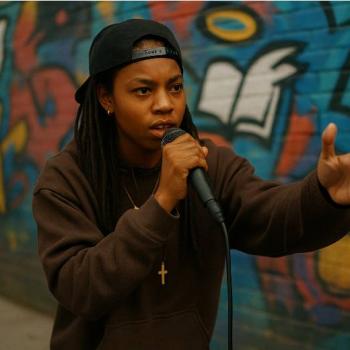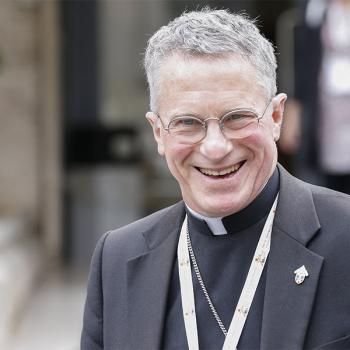There was no apparent anger in the crowd, just despondent confusion. The protesters were not even inconveniencing the big businesses they claimed to hold grievances against, as mostly smaller retailers and restaurateurs owned businesses in the area. They were the ones being inconvenienced by the mess and crowds. As I walked away, I wondered with amusement if anyone in the crowd had noticed the dozens of "help wanted" signs hanging in store windows nearby.
Was this really what my generation had been reduced to—disenfranchised dreamers already nostalgic for their tween years, waiting around for their latest idea to pay off the debt their higher education gave them? The Arab Spring is supposed to be a source of their inspiration, but even with a rough year or two behind them, what did they know about decades of suffering and lost dreams endured by those in the Middle East, or people like my mother and the immigrant vendors around them?
There had to be something more to these protests, something that was not apparent to a mere passerby. I decided to reach out to Muslims who share my values but are in support of, and even actively involved in, the movement. I wanted to know what inspired them, what connected them to yet another seemingly "pale male" movement, and finally, what they hoped to achieve.
Overwhelmingly, the Muslims I spoke with felt strongly, as I did, about the duty of a Muslim to stand up for social justice. Many had found ways to integrate their faith into their activism and engage in meaningful interfaith and interracial dialogue. Interestingly, none identified the movement as a means to an end but rather, an initial step toward seeking those means. I will share more on their perspectives with the subsequent articles in this series.
Through these discussions, it dawned on me that perhaps it is a misnomer to refer to this solely as a protest and instead, we ought to see this as an open and public quest for answers that those in law, policy, academia, government, and finance have grappled with for decades yet are still unable to reach agreement. This search is turning into a social experiment in reviving American democracy from its core—the people—by calling on all people, even those who disagree with protesting and even those in finance and government, to meet and discuss our societal problems, find practical solutions, and empower themselves.
There are no visible leaders, but there is clearly a structure. There are no official demands, but there are strategies being developed, and only with active participant consensus. Furthermore, unlike the Tea Party, this movement is not operating with any political affiliations and there are no special interest ideologies being pushed forth.
As this is an unprecedented form of organizing, it is understandably unsettling for idealistic pragmatics like myself. As John Oliver of the Daily Show demonstrated, endearing as it is, the whole concept is a little weird, and the tactics are at times, frustrating. But it could turn into just the inspiration my restless generation has been searching for—a movement larger than ourselves.
Perhaps as the "American Fall" turns into winter, the crowds will dissipate. The true test of this movement will be what happens after, when the "Occupy Something" movement turns into the "Do Something" movement and the participants move on to implement the skills learned. Ironically, this is exactly what our overpriced pedagogical institutions taught my generation to do with our corporate sponsored educations—believe we are worthy, think outside the box, start a movement, and change the world. This is an awakening. This is not Palahniuk but, Rumi come to life:
Out beyond ideas of wrongdoing and rightdoing,
there is a field. I'll meet you there.
When the soul lies down in that grass,
the world is too full to talk about
ideas, language,
even the phrase "each other"
doesn't make any sense.




